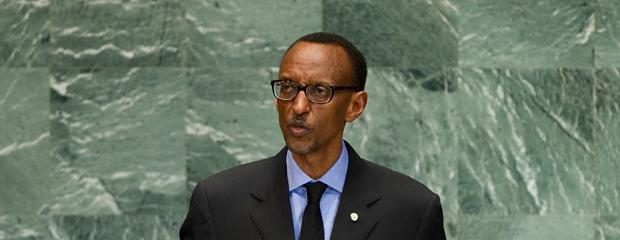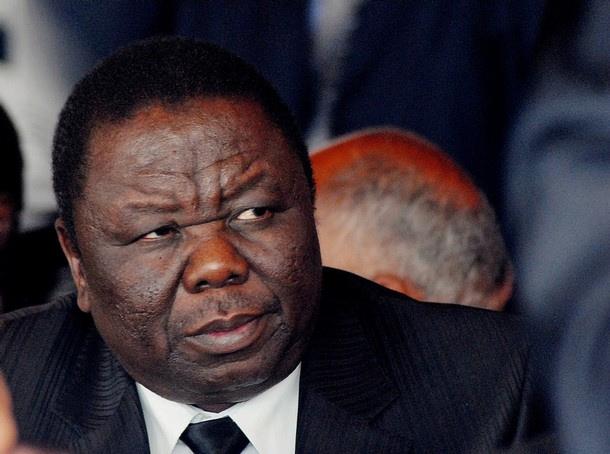Sudan’s Islamic Movement: Mosaic Democracy, a New Concept
Posted on behalf of Ambassador Hassan E. Talib.
First of all, I would like to extend my gratitude to this blog for allowing this opportunity for the debate on the issue of culture and political conduct of the Islamic Movement in Sudan, including the National Islamic Front (NIF). I thank, as well, Dr. Al-Affendi for his valuable and well informed insights.
The era of mass-democracy and mass movements that depend on mass mobilization and charismatic historical leaders, who usually stick to life-long leadership mandate, has gone for good, leaving the play ground for the fragmentations the article talks about.
Throughout its history that last more than six decades since 1947, the Islamic Movement in the Sudan has undergone complex processes of restructuring, re-naming and fragmentation in different splinter group lets of different sizes and influence, at least five times, with an average time-lag of 12 years.
In the global arena of our day and in the Sudan of post Comprehensive Peace Agreement (CPA), concluded with the former rebels of the South, the Sudan Peoples’ Liberation Movement (SPLM), on January 9 2005, I think what the NIF has been successful in doing since its inception in the mid-80s of the last century, was the establishment of a novel political system of governance in the Sudan, on Islamic grounds. This experience has returned the Sudan conceptually to the essential stage of nation-building and coalesced governance. It is a phase reminiscent of the threshold historic year of 1504; when the modern Sudanese identity was born as a hybrid product of successful coexistence and cohabitation of Nubian-Arab blood and Muslim culture, manifested in a political form called: Assaltana Azzarqa’a (the Blue Sultanate), that had designated as its capital the town of Sennar, on the bank of the Blue Nile in central eastern Sudan.
The post-independence laws of governance inherited by the government of the Sudan from the Condominium administration on January 1 1956, were colonial ordinances fabricated by Britain and imported to Sudan via India, where they had been initially adopted and thoroughly tested to nurture a slavish and obedient character for the human person in that part of the world; and were carefully designed to produce imperial submissive human objects in the colonies, never to become free citizens or cherish nationalistic and cultural identities different from that of the colonizer.
The National Salvation Government that emerged on June 30 1989 has come as a natural follow-up on the intellectual track and political doctrines of the state of Mahdiyya that has been ruling the Sudan, as sovereign and independent state, for 14 years (1885-1898), after liberating the country from a corrupted Turkish colonial regime that lasted for 65 years (1820-1885). In the year 1898, the nationalist Mahdiyya state was brutally invaded and inhumanly annihilated by the Condominium occupation forces composed of the armies of both Britain and Egypt, under the instructions of the British General, Kitchener.
The experience of Islamic governance brought by the NIF has followed, sustained and fine-tuned another maiden experience on modern, non-traditional Islamic rule, with no precedent in the Arab and African Muslim countries in the 20th century. The endeavor was started by former president, Jaafar an-Numeiri (1969-1985), who in September 1983, had engaged in a massive legal, cultural and nationalist campaign that started with governance reform; aiming at refining all the laws in force in the Republic of the Sudan; and to erase any contradiction or incompatibility therein in order to streamline with the Islamic Shari’a.
The new version of Islamic governance and the type of legal expansion and inclusiveness the NIF administration has brought, however, is manifested in the undergoing process of implementation of the CPA; and the wide margin of participation in the state administration provided to non-Muslims, at any time in the history of modern Sudan, with no match in any other Islamic state, save that of Andalusia in Spain, during the era of Muslim governance in that part of Europe, between the 8th and 15th centuries, where Jews and other non-Muslims were appointed at all levels of state, including as ministers and advisors to the heads of state and government.
It is a brilliant idea and a demonstration of maturity in civic governance to have different groups which may represent various schools of Islamic or other political thought interacting in a tolerant and accommodating environment rather than nurturing, instead, rival groups lusting after the monopoly of the state, using every means possible to quench an insatiable thirst for power and wealth.
The role of the NIF and its mission have been technically, but naturally, terminated by the reach of Islamists to the climax of power.
The Federal system that the Sudan is currently run with, allows for each and every one of the 25 states that form the federal system, to choose any legislation that finds the consent and endorsement of the majority of the constituents in it through referendum. This stands as a practical response to the discreet requirement and peculiar needs of communities of the post mass-democracy era, where Muslims, in order to survive effectively must deal with its challenges intuitively.
The peculiar Islamic and other groups at various states and regions of special requirements in the Federal Sudan can solicit popular support in some states through conducting coalitions with domestic parties of various affiliations, which may lead to agreement on certain policy issues of common mutual interest.
This kind of relationship between different organizations of diverse thinking background is actually apparent in the United States system of democratic popular governance, where caucuses at different states may agree on specific issues of immediate interest to the activists raising them, irrespective of existence of prior agreement on affiliation to same political parties; or the requirement of sharing similar views on fundamental principles.
This political conduct is apparent as a fact of life, to the extent that one sees certain members in the US congress break away with their respective party’s publicly declared positions. This may be a practical application to the novel concept that Alvin Toffler coined: “˜Mosaic Democracy’ as defined in his renowned work: Power Shift.
The National Congress Party, the ruling party, is now engaged in a formal and binding political coalition with the Sudan Peoples’ Liberation Movement (SPLM), aiming at the implementation of the Comprehensive Peace Agreement (CPA), fully and faithfully.
The final outcome of this whole experience has yet to be assessed and evaluated. The underlined result, at this point in time, has been the ascension to the echelons of the Federal Government in Khartoum, officially known as the Government of National Unity (GoNU), of ministers and other high-ranking officials affiliated with the SPLM, who are not Muslims, to rule and govern over a nation where approximately 90% of its population, or so, claim to be Muslims. This in fact, is a novel attitude in the literature of the Islamic traditional Shari’a laws. No Muslim scholar or any Islamic organization, inside or outside the Sudan, has contested or questioned the sensibility or the Islamic legitimacy of such endeavor.
This may be the pragmatism that other Muslim states need to look into and may probably emulate, according to their peculiar circumstances, in order to align with the realities that the system of globalized economy and governance dictates upon all its actors.
This is the era of post-mass democratization and mass mobilization we live.
The historical egos embodying the charismatic leaders of movements in Sudan throughout the previous decades defined by proliferation of mass movements may vanish and go. The movements themselves may disintegrate, restructure or fragmentalize.
Nevertheless, new concepts will always emerge with new frameworks and prosper to match the new changes brought by globalization and by the natural development of civic community requirements.
Concepts and new ideas never die. Long live the concept.
__________
Ambassador Hassan E. Talib, is on temporary mandate as Senior Research Fellow at the Centre for Strategic Studies, in Khartoum, Sudan.
The views expressed in the article are personal and not necessarily representing the Ministry of Foreign Affairs or CSS.







I am southern sudanese living in diaspora and i would like to commend Ambassador Hassan for his eloborate and thought provoking analysis of the political evolution in the sudan. I only hope that successive political leaders who ruled should have had foresight that economic marginalization of southerner and others, and enactment of divisive and controversial laws in to the sudanese constitition would eventually lead to social and political disintegration of sudan, the war between south and north that resulted into lost of lifes from both sides could have been avoided. As the Ambassador put it rightly, when a system failed to acommondate the needs of the populace, a new concept with a new framework will emerge to match the forces of globalization and natural development of civic community.